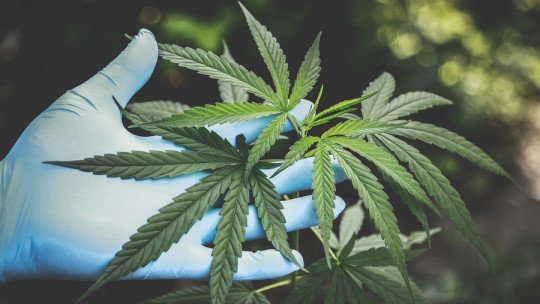In recent years and as a result of its legalization in different parts of the planet, the debate surrounding marijuana consumption has become increasingly stronger. Hand in hand with the increasing social normalization of marijuana, many people do not consider it a drug comparable to cocaine or MDMA, but rather define it as a weaker and even natural substance.
And, within this same debate, there is also a discussion about what is better, the consumption of joints in the most classic and typical way, with marijuana that contains THC, or the consumption of CBD. CBD, also known as cannabidiol, is one of the components of marijuana. This is normally associated with physiological reactions of well-being and rest, having generated the social belief that its consumption is healthier than that of marijuana containing THC
In this article, we are going to answer this question, exploring the key differences between CBD and THC, analyzing their different health impacts and considering whether one is really better than the other in certain aspects.
CBD and marijuana: key differences
To understand the relationship between CBD and marijuana, it is essential to know their fundamental differences. Cannabidiol (CBD) is one of the many compounds present in the cannabis plant, known as cannabinoids. Unlike another prominent compound, tetrahydrocannabinol (THC), which is more abundant in marijuana, CBD is non-psychoactive, meaning it does not produce the “high” effects typically associated with marijuana.
Marijuana, on the other hand, contains a variable mix of cannabinoids, including THC, which is responsible for the characteristic psychotropic effects of this plant. It’s important pointing that Marijuana has long been used for recreational and medicinal purposes, but its THC content can vary widely depending on the strain and cultivation method.
In summary, the main distinction between CBD and marijuana lies in the presence and concentration of THC. While CBD is non-psychoactive and has been promoted for its potential health benefits, THC-rich marijuana is often used for its recreational and medicinal effects, but can also carry health risks.
Health Impact: THC vs CBD
Having defined the main differences between these components, knowing the impact on health of these two compounds derived from cannabis, CBD and THC, is key to answering the key question of this article. Let’s see what differential effects both compounds have on our physiology:
1. Effects of THC
Tetrahydrocannabinol (THC) is the main psychoactive compound in marijuana. When consumed, THC binds to cannabinoid receptors in the brain, which can result in a feeling of euphoria, relaxation, and altered sensory perception. However, these effects can vary widely depending on THC concentration and individual sensitivity.
Despite the pleasurable effects it can produce, THC also carries certain health risks Excessive consumption of THC can lead to unwanted side effects such as anxiety, paranoia, and confusion. Additionally, in some people, prolonged and frequent use of THC-rich marijuana can lead to the development of psychological dependence, and impact the chances of developing psychotic and anxiety disorders. It is important to keep these aspects in mind when evaluating the benefits and risks of marijuana.
2. Effects of CBD
On the other hand, cannabidiol (CBD) has gained attention due to its potential therapeutic benefits. Unlike THC, CBD does not produce a high and is therefore considered non-psychoactive. It has been widely studied for its potential in relieving pain, reducing anxiety, and improving sleep, among other possible medicinal uses.
CBD interacts with the body’s endocannabinoid system , which plays a crucial role in the regulation of various physiological functions. Although research into the effects of CBD is ongoing, there is evidence to support its usefulness in certain medical contexts. For example, in some cases, CBD has been shown to be effective in treating specific forms of refractory epilepsy.
Medicinal uses and applications
Cannabidiol (CBD) and marijuana have been considered for their medicinal applications in various contexts. As we research more into their potential uses, it is critical to understand how these compounds may influence human health and in which specific areas they could make a difference.
1. Medical applications of CBD
CBD has been the subject of research in relation to a number of medical conditions. It has been highlighted for its potential in relieving chronic pain with some studies suggesting that it may help reduce the sensation of pain by interacting with the nerve receptors responsible for pain perception.
Additionally, its usefulness in the management of anxiety and stress-related disorders has been explored. Some preliminary research suggests that CBD could influence anxiety-related neurotransmitters, which could lead to a feeling of calm in certain individuals.
Another field of study is the use of CBD in the treatment of certain types of epilepsy. In this sense, CBD has shown particular promise in cases of refractory epilepsy in children which has led to the approval of a CBD-based medication for the treatment of these disorders in some countries.
2. Legal considerations
However, while CBD has been gaining acceptance in the medical field, regulations vary widely by country and state. Some regions allow medical use of CBD, while others may have stricter restrictions or even complete bans. It is essential to understand the laws and regulations in your area before considering using CBD-based products.
In addition to legal considerations, It is important to address the responsible use of CBD and marijuana Consulting a health professional before incorporating these compounds into your routine is crucial, especially if you are taking other medications. Individual effects may vary, and what works for one person may not be suitable for another.
Risks and precautions
Despite the possible medicinal and well-being benefits of CBD, it is important to keep in mind that these substances are still considered drugs, and although they can have positive impacts on our physiology or health, they can also alter behavior and generate addictive disorders. As with any substance that affects the body and mind, it is important to understand the possible adverse effects and take steps to mitigate them.
1. Possible disadvantages of CBD
Although CBD is considered safe for most people, some individuals have reported experiencing different side effects. These may include fatigue, changes in appetite, dizziness, and diarrhea. Besides, CBD may also have interactions with other medications or substances that are being consumed, altering their effectiveness or intensifying their side effects. Therefore, it is essential to have the approval of a medical and mental health professional before incorporating CBD consumption into your routines.
Additionally, the market for CBD products can be confusing and not always adequately regulated. CBD exists to be smoked, but also to include it in food or in oil format to use as a muscle relaxant. It is important that you inform yourself well and with professionals in the sector to know which product may be most useful for your case and situation.
2. Marijuana abuse and dependence
When it comes to marijuana, one of the most prominent risks is the potential for abuse and dependence, especially for strains high in tetrahydrocannabinol (THC).
Frequent and excessive use of marijuana can lead to tolerance , meaning that more of the substance is needed to obtain the same effects. This, in turn, can increase the risk of developing psychological dependence. Additionally, for some people, regular marijuana use can affect cognitive function, memory, and concentration. This can be especially concerning in teenagers and young adults, whose brains are still developing.
Find out and decide what is best for you
Ultimately, the decision to use CBD or marijuana must be informed and carefully considered. Both CBD and marijuana have their own benefits and risks, and the choice will depend on various factors, such as individual health needs and legal regulations in your area. Do not get carried away by social beliefs or your environment and look for specialized information and that they give you a more realistic approach to what the consumption of these substances entails.
Marijuana and its compounds continue to be the subject of research, and our understanding of its health effects continues to evolve. Before making any decisions, seek information from trusted sources and, if necessary, consult a health professional who can offer personalized guidance based on your individual circumstances.









